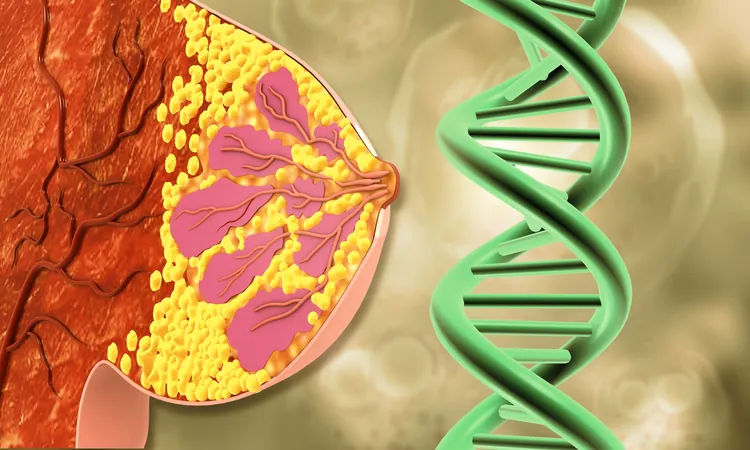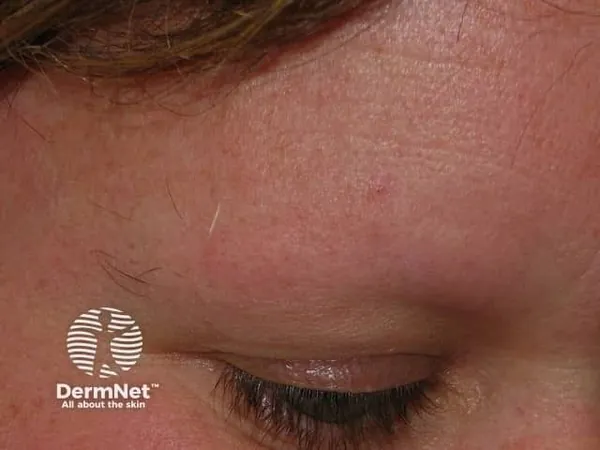
Understanding and Managing Germline Mutations in Hereditary Breast Cancer: A Critical Guide
2024-10-07
Author: Nur
Hereditary breast cancer accounts for 5% to 10% of all breast cancer cases and is primarily caused by genetic predispositions. These inherited mutations significantly increase the risk of developing breast cancer, not only affecting the individual but also impacting family health outcomes. Understanding these genetic factors is essential for early detection, risk assessment, and tailored preventive strategies.
The Genetic Landscape of Hereditary Breast Cancer
The most notable genes associated with hereditary breast cancer are BRCA1 and BRCA2. Women with mutations in these genes can face a staggering lifetime risk of 55% to 58%, compared to 12.5% for the general population. The risk can escalate further if there is a family history of breast cancer or related cancers such as ovarian or pancreatic cancer.
Dr. Kate Baker, a medical oncologist, emphasizes the crucial role these genes play in regulating cell functions. "When these DNA repair genes are functioning correctly, they help prevent harmful mutations. However, mutations can lead to uncontrolled cell growth, resulting in cancer," she explained.
In addition to BRCA1 and BRCA2, several other less common gene mutations, such as TP53, PTEN, PALB2, CHEK2, and ATM, have been linked to hereditary breast cancer. These genes are categorized as tumor suppressors, and when they are mutated, they fail to regulate cell growth, leading to cancer development.
Key Genes Associated with Hereditary Breast Cancer
- **TP53:** Mutations are tied to Li-Fraumeni syndrome, with up to a 90% risk of developing one or more cancers in a lifetime. - **PTEN:** Linked to Cowden syndrome, increasing risks for melanoma and other cancers. - **PALB2:** Partners with BRCA2 for DNA repair; mutations correlate with a 35% increased breast cancer risk before age 70. - **CHEK2:** Increases the risk of breast and prostate cancers. - **ATM:** Associated with ataxia-telangiectasia, but also heightens the risk for various cancers including breast cancer.
Genetic Testing: A Key to Prevention
Germline testing is a critical step for individuals who may benefit from understanding their genetic risk for hereditary breast cancer. This testing analyzes non-cancerous cells, typically using blood samples, and identifies harmful mutations or variants of uncertain significance. Despite its importance, many eligible individuals do not undergo testing due to restrictive guidelines and high costs, which can range from $100 to over $2000. Alarmingly, only about 26% of women diagnosed with breast cancer have undergone germline testing.
The American College of Radiology recommends that all women undergo breast cancer risk assessments by age 25, especially those at higher risk, like Black and Ashkenazi Jewish women. These groups show a heightened prevalence of BRCA mutations and poorer outcomes from breast cancer.
The Call for Universal Testing and Individualized Care
Healthcare experts advocate for universal genetic testing to improve access to necessary treatments and clinical trial opportunities. They suggest that individualized risk reduction strategies, informed by genetic testing results, could lead to better patient outcomes.
As researchers continue to uncover the complexities of hereditary breast cancer, the emphasis remains on empowering patients with knowledge about their genetic risks, fostering early screenings, and providing personalized treatment options that enhance survival rates and overall quality of life.
By raising awareness about the implications of genetic mutations in breast cancer, we can transform the landscape of prevention and treatment, ultimately saving lives. If you think you may be at risk, don't hesitate to discuss genetic testing options with your healthcare provider. Your health could depend on it!






 Brasil (PT)
Brasil (PT)
 Canada (EN)
Canada (EN)
 Chile (ES)
Chile (ES)
 España (ES)
España (ES)
 France (FR)
France (FR)
 Hong Kong (EN)
Hong Kong (EN)
 Italia (IT)
Italia (IT)
 日本 (JA)
日本 (JA)
 Magyarország (HU)
Magyarország (HU)
 Norge (NO)
Norge (NO)
 Polska (PL)
Polska (PL)
 Schweiz (DE)
Schweiz (DE)
 Singapore (EN)
Singapore (EN)
 Sverige (SV)
Sverige (SV)
 Suomi (FI)
Suomi (FI)
 Türkiye (TR)
Türkiye (TR)